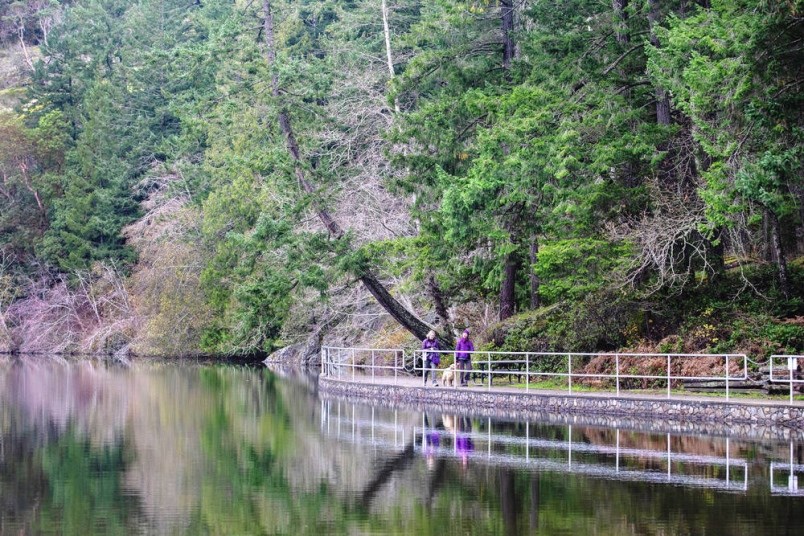The pandemic is pushing people into the great outdoors in record numbers — and helping to reduce stress levels heightened by a second wave of the virus, according to a new survey.
An Ipsos poll conducted for the Nature Conservancy of Canada found 94% of respondents credit time spent in nature with helping to relieve anxiety caused by the pandemic.
Eighty-six per cent of poll respondents said spending time in nature is important to their mental health during COVID-19, and 78% said getting outside is the best way to visit with friends and family right now.
More than half of respondents indicated winter weather would not curb their desire to spend time outdoors.
Christiana Jones, spokeswoman for Capital Regional District Parks, said the local system of parks and trails has seen a huge increase in use over the past year.
She said in 2020, individual visits to CRD parks and trails shot up to 8.5 million, a million more than the previous year.
While regional trails only saw a marginal increase in use, Jones said parks saw an overall use increase of 25%.
In some parks, such as Francis/King Regional Park, visits increased about 65%, noted Jones. The region’s “most visited” park, Elk/Beaver Lake Regional Park, saw 1.7 million visits in 2020.
“We recognize many families and individuals rely on our regional parks, and we appreciate the public’s support in continuing responsible visitor use,” she said.
The Nature Conservancy of Canada said the trend to venture outside is especially prevalent among women and young families, and that there is a greater awareness of nature among Canadians since the pandemic began.
“The findings reinforce the inextricable connection between nature and health,” the conservancy said. “Clean air, clean water and healthy foods all come from nature.
“At a time when health is a top priority for Canadians, nine in 10 surveyed say we need to invest more to restore and care for the natural areas that sustain us all. By taking care of nature, we take care of each other.”
The survey concluded the Nature Conservancy’s Landmark Campaign, which raised more than $750 million and resulted in 115,000 square kilometres of land protection across Canada — an area more than three and a half times the size of Vancouver Island.
The campaign also protected habitat for 130 species at risk.
Significant achievements in B.C. included protecting the entire Next Creek Watershed in the West Kootenay, which completed Darkwoods, the largest private land conservation project in Canada.
Several wetland, grassland and forest habitats were also acquired across the province, and conservation initiatives were launched in three new high priority areas at Clayoquot Sound, Pemberton Valley and the Bella Coola Valley.
Read more from the Times Colonist



